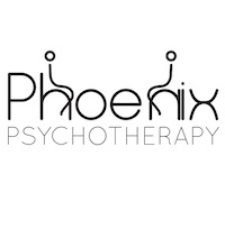Unlike what many people believe, you don’t have to be diagnosed with a mental illness or be “crazy” to see a therapist – anyone can benefit from the experience. But sometimes it can be hard to identify when you need professional help with the difficulties life is throwing your way. These signs can help you know when you, or a loved one, should get help from a therapist.
1. Your daily functioning is impaired: If your sleep pattern has been a mess lately, appetite either too high or too low, and performance at school or work has been affected, it’s probably a good time to visit a therapist. Your mental health can make you just not feel like yourself, and make it difficult to focus on daily activities. Therapy can help get you back on track.
2. You feel socially withdrawn and your relationships are strained: If you’ve been isolating yourself from your social circles, or having difficulty communicating with loved ones, you may want to consider seeking therapy. Being unable to properly express or even identify how you feel in a relationship can lead to frustration and increase your negative emotions.
3. You feel helpless: Most people who come into therapy have already tried to help themselves. If you feel like nothing you’ve done lately seems to be helping your situation, seeing a therapist is a good step to take that will ensure you get the help you need.
4. You feel stuck where you are: Sometimes we all may be unsure of what we’re doing and feel unhappy with our lives. Finding yourself feeling this way consistently over a period of time might be a sign that you could benefit from therapy.
5. Your friends and family are worried about you: People close to you expressing concern about your behaviour or the emotional state you appear to be in is a sign to take note of. Those who know you best might be able to notice patterns that are hard to see internally, so it might be a good idea to take their advice.
6. You experience emotions with great intensity: Overwhelming emotions and prolonged sadness or anger are things therapy can help you with. Being constantly worried and assuming the worst in a situation (or ‘catastrophizing’) are also signs to look out for.
7. You’re using unhealthy coping methods: Using or abusing substances to cope with distress is a dangerous spiral to get caught in. Addictive thinking and behaviour with anything, for that matter – whether it is substance, food, or even a particular activity – could be a sign that you may be trying to distract yourself and numb feelings that could be better dealt with otherwise.
8. You’re struggling with life changes: Breakups, losing your job, or the death of a loved one are all examples of events that can have a big negative impact on your mental health. Even changes that may be otherwise positive, such as getting married or relocating, can be emotionally challenging to deal with at times. A therapist can help you regain direction in the face of these changes.
9. You have unexplainable physical symptoms: Headaches, digestive issues, and more that seem unrelated to any physical cause could be a manifestation of emotional causes. Excess stress can lead to a rundown immune system and frequent illness.
10. You no longer enjoy the things you used to: Hobbies and other activities that used to give you pleasure no longer feeling the same is another indicator that you’re a good candidate for therapy.
If you feel like you identify with these signs, don’t hesitate to reach out. Going for therapy is not a sign of weakness, an idea that causes many to refrain from accepting professional help. On the contrary, seeking help is the first step to solving the difficulties you’re facing and can lead to better health, relationships, and an overall improvement in your life.
Written by Sanaya Katrak
